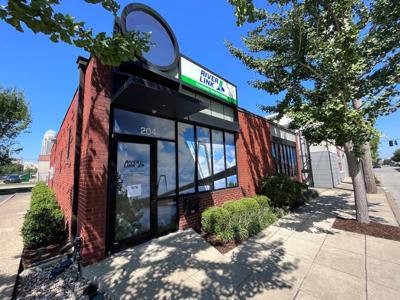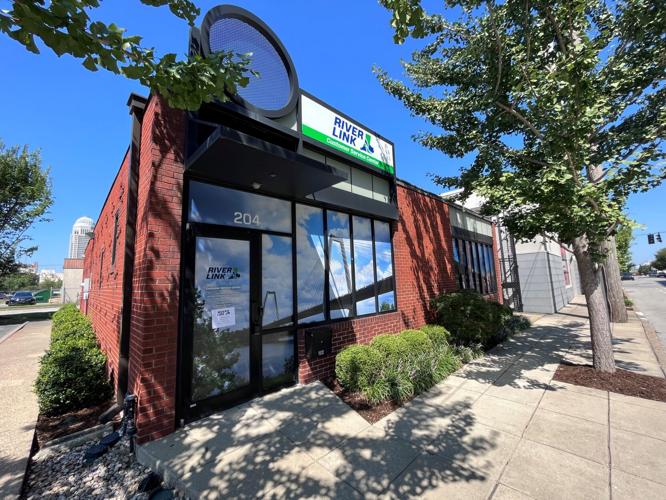LOUISVILLE, Ky. (WDRB) -- More than 11 months ago, a new company took over toll collection, customer service and billing operations for the RiverLink system that includes three Ohio River bridges between Louisville and Clark County, Indiana.
The transition was years in the making. Top Kentucky and Indiana state government leaders sought a new provider for the work in 2020 and the following year picked Texas-based Electronic Transaction Consultants, which boasted that it and its partners would "streamline billing, improve ease of website and mobile self-service, and facilitate speedy question and issue resolution" for RiverLink drivers.
But how exactly is ETC, now part of Quarterhill Inc., and its team doing to fulfill those promises and other goals?
It's impossible to know — for now. Kentucky and Indiana agencies have not yet provided detailed operations reports dating to late 2023, even though those records must be available to the public under open records laws in both states.
WDRB News has been requesting the records for months and last week filed an appeal with Kentucky Attorney General Russell Coleman's office, arguing that the Kentucky Transportation Cabinet has violated the state's public records act in withholding the reports.
As a result, the most recent snapshot of RiverLink operations is from last November.
"It's important that they follow through with what they agreed to do to make this information available to the public," said Kentucky state Sen. David Yates, D-Louisville, who serves on three transportation committees in the General Assembly.
Ultimately, he said, it matters that "our constituents, the people who are directly affected, have a really clear idea of how these things are turning out."
In Indiana, state Rep. Wendy Dant Chesser, D-Jeffersonville, said RiverLink issues have been the top local concern she's heard since her appointment to the southern Indiana legislative seat in June.
"I stand on trust and accountability for elected officials and the agencies that they oversee," Dant Chesser said when asked about the toll reports not being made public. "That is something that I will maintain my support for.
"I can't imagine anything good to come from not sharing information that has been public information for the last eight years."
In hiring ETC, Kentucky and Indiana required monthly reports that show the prior month's performance — a sweeping account of everything from call wait times to "risks" and concerns with the all-electronic network on the I-65 Kennedy and Lincoln bridges, and the upriver Lewis and Clark Bridge.
The reports are similar to those provided by RiverLink's first provider, Kapsch TrafficCom, which operated the system from 2016-23. Kentucky provided WDRB with the Kapsch reports without delay for years.
That changed when ETC took over.
The state released the ETC reports earlier this year for the first three months of the contractor's work — September through November 2023 — although portions were redacted. The complete versions of those early reports were provided in June after WDRB successfully won an appeal to Attorney General Coleman's office.
In May, however, KYTC indicated that reports starting in December 2023 were in "preliminary draft form" and said in an update last month that there was no date for them to be finalized.
"The states are working with the toll service provider to finalize all required elements of the reports," KYTC spokeswoman Naitore Djigbenou said in an email on July 1.
WDRB also requested the reports on July 10 from the Indiana Department of Transportation. It has not yet provided them or responded to an email on July 29 seeking an update.
Without the comprehensive reports available, the states have released handpicked data through its public relations consultant. In late May, a press release said there had been "significant improvements" to the system, including a decrease in call wait times.
And in early June, assistant Kentucky state highway engineer Amanda Spencer reiterated those points during a legislative hearing in Frankfort. She told lawmakers that RiverLink operations began improving after the Kentucky-Indiana Joint Board, which oversees the toll system, pumped $3.3 million into staffing and pay earlier this year.
"Transitions of this size and complexity are challenging," Spencer said during a June 5 meeting of the interim budget review subcommittee on transportation. "I want to acknowledge challenges with this transition, but we have acted, and we have seen swift improvements as a result of those actions."
Sen. Jimmy Higdon, R-Lenanon, chair of the Senate Transportation Committee, said KYTC's June overview was "vague, and I think a lot of it has to do with the new vendor."
"It was a pretty weak report. I wanted the company themselves to come," he said, adding that he plans to ask ETC to appear before the committee, possibly as early as its September meeting.
Meanwhile, call wait data provided this week by the states' RiverLink spokesperson, Mindy Peterson, shows that call center workers continue to answer calls more quickly.
In July, the data show, the average call was picked up in 38 seconds, down from 57 seconds in June and the shortest wait time so far this year. In January, for instance, it took nearly 30 minutes on average for a call to be answered.
"Improving the customer service experience continues to be a top priority for the states," Peterson said in an email. "The most recent call response and hold times show significant reductions, meaning callers are getting assistance faster."
But drivers continue to have concerns and complaints. Marvin E. Taylor, who lives in Shively, said he received erroneous charges in recent months for crossing the downtown RiverLink bridges.
Taylor said he avoids the RiverLink bridges to get to his part time job in Indiana, only using them when the toll-free Clark Memorial Bridge has been closed. He said he recently was notified that he had crossed 44 times, with money for those trips taken out of his prepaid account.
He insists that's impossible and believes the charges may be part of a license plate mix-up. Frustrated with what he said was inaction from RiverLink staffers, Taylor said he now uses his cell phone to document every time he uses the Clark Memorial.
"When I cross the bridge every morning on my way to work, what I do (is) I record myself, and I document the time that I cross," he said.
"I just want justice. I wish they would replace my money," Taylor said. "That's all I was asking for."
RiverLink Coverage:
- RiverLink call wait times falling, officials say
- 'Heavily redacted' RiverLink reports violate Kentucky open records law, attorney general rules
- New RiverLink operator struggling to achieve customer service goals
- Kentucky and Indiana approve $3.3 million to address RiverLink customer service woes
Copyright 2024 WDRB Media. All Rights Reserved.














